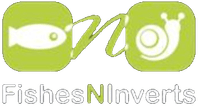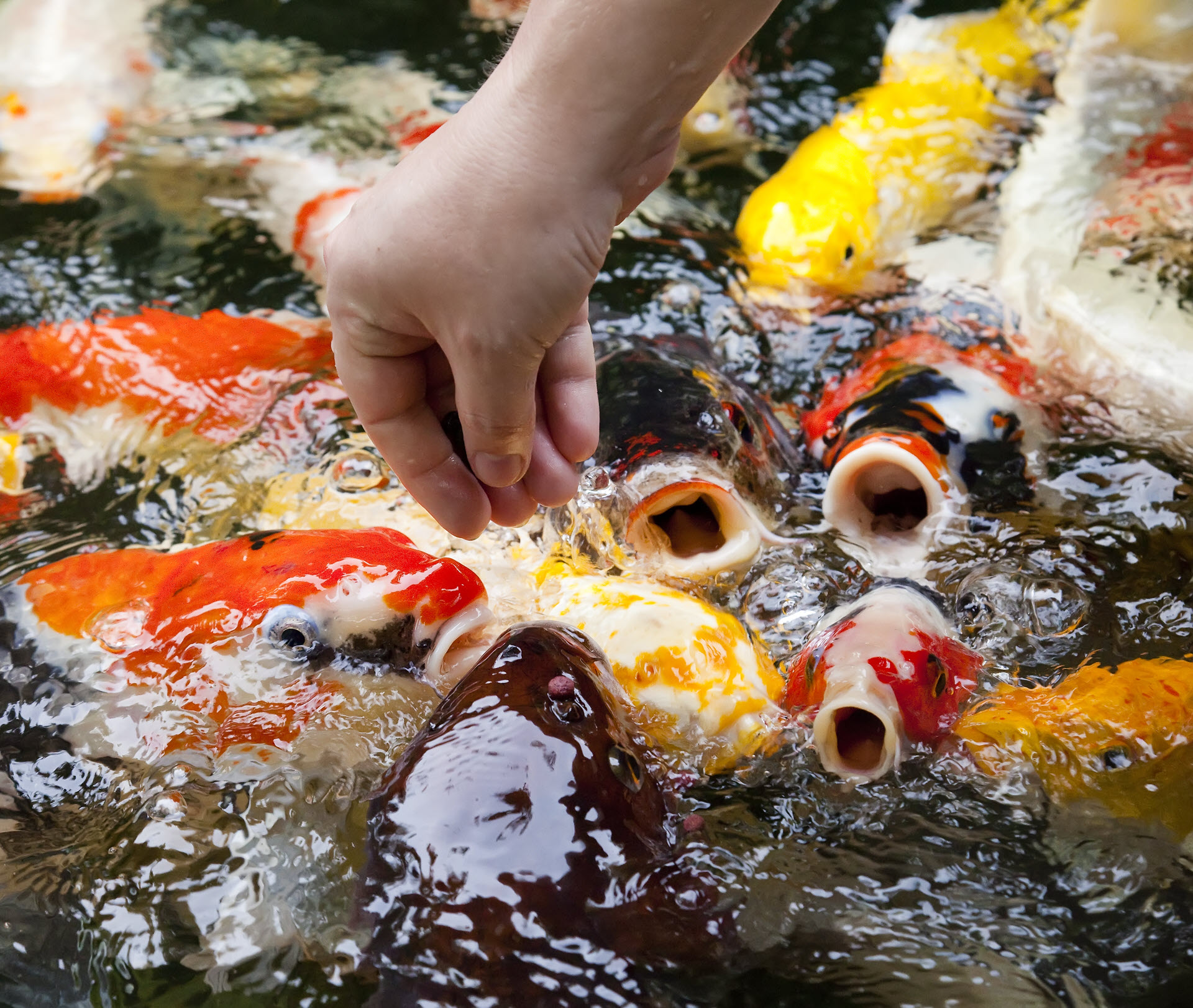Koi fish typically eat a diet that consists of both plant-based and animal-based foods. They are omnivorous and will eat a variety of foods. Some common food items for koi fish include:
1. Pellets: High-quality commercial fish pellets specifically designed for koi provide them with all necessary nutrients.
2. Vegetables: Koi fish can eat various types of vegetables, including peas, lettuce, spinach, and watermelon.
3. Fruits: They can also consume fruits such as oranges, apples, and grapes.
4. Insects: Koi fish enjoy eating insects, including worms, mosquito larvae, and dragonfly larvae.
5. Shrimp and small fish: They will consume small shrimp or fish like brine shrimp or feeder fish.
6. Algae and plants: Koi will graze on algae and consume aquatic plants like duckweed and water hyacinth.
It is important to provide a balanced diet for koi fish to ensure their optimal health and growth.
Know More About: what do koi fish eat
Koi Fish: A Glimpse into Their Nutritional Needs
Introduction:
Koi fish, with their vibrant colors and graceful swimming, are a prized addition to any pond or aquarium. These ornamental fish originate from Japan, where they are highly revered. Ensuring the good health and optimal growth of koi fish involves meeting their specific nutritional needs. In this article, we will delve into the dietary requirements of koi fish and explore the diverse range of foods that can support their well-being.
1. Natural Diet of Koi Fish:
In their natural habitat, koi fish are omnivorous creatures, which means they consume both plants and animals. They primarily feast on aquatic plants, insects, and crustaceans, making their diets rich in proteins and essential nutrients.
2. Balanced Pellet Diet:
To mirror their natural diet, commercial fish pellet manufacturers have formulated nutritionally balanced food options for koi fish. These pellets typically consist of fishmeal, soybean meal, wheat germ, and a variety of additional vitamins and minerals. Both growth and maintenance pellet formulas are available, enabling koi owners to choose the appropriate option based on their fish’s life stage.
3. Nutritional Supplements:
In addition to pellets, nutritional supplements can be added to a koi fish’s diet to promote overall health and vibrant coloration. Spirulina, a microscopic blue-green algae, is known to enhance pigmentation in koi fish. Another popular supplement is wheat germ, which is rich in vitamin E and can support the immune system.
4. Fresh Fruits and Vegetables:
To provide additional variety to their diet, koi fish can benefit from the occasional inclusion of fresh fruits and vegetables. These can be chopped into small pieces and offered as treats. Carrots, lettuce, watermelon, and peas are excellent choices, providing beneficial fiber and essential vitamins.
5. Insects and Invertebrates:
In a controlled environment like a pond or aquarium, koi fish may not have access to the same abundance of insects and invertebrates as in the wild. However, providing live or freeze-dried options, such as brine shrimp, daphnia, or bloodworms, can offer a natural source of protein that they would usually consume in their natural habitat.
6. Homemade Diets:
Some koi enthusiasts choose to prepare homemade diets for their beloved fish. While this can be time-consuming, it allows the owner to have complete control over the nutritional content. Homemade blends often include ingredients such as fish, shrimp, vegetables, and even eggs, tailored to meet the specific dietary requirements of individual koi fish.
7. Feeding Frequency and Portion Control:
It is crucial to strike a balance between underfeeding and overfeeding koi fish. Overfeeding can lead to poor water quality and various health issues, while underfeeding can hinder their growth and overall vitality. Experts suggest feeding koi fish smaller portions multiple times a day, ensuring they consume their meal within a few minutes. Regular monitoring of the fish’s body condition and adjusting feeding quantities accordingly is essential for maintaining their optimal health.
Conclusion:
Understanding koi fish’s nutritional needs is imperative for keeping them healthy and vibrant. By providing a balanced pellet diet, nutritional supplements, fresh fruits and vegetables, and considering occasional live or freeze-dried treats, koi owners can ensure their fish receive a well-rounded and nutritious meal. Whether choosing commercial products or opting for homemade diets, taking care to achieve portion control and feeding frequencies will help maintain the health and happiness of these magnificent creatures.
Key Takeaways from what do koi fish eat
Koi fish, a popular choice for pond owners, have a varied diet that primarily consists of pellets specially formulated for their nutritional needs. These pellets are rich in protein, carbohydrates, vitamins, and minerals. However, koi are omnivorous and also enjoy consuming live foods such as insects, worms, small crustaceans, and algae. Feeding them a varied diet improves their overall health. It is important not to overfeed the koi as excess food can lead to health issues. The ideal feeding portion should be consumed within a few minutes to avoid uneaten food sinking to the bottom, which can negatively impact water quality.
FAQs on what do koi fish eat
1. What do koi fish eat?
Koi fish primarily eat a diet that consists of pellets or flakes specially formulated for them. They also enjoy consuming insects, worms, and plants found in their habitat.
2. Can koi fish eat human food?
While koi fish can occasionally eat small amounts of certain human foods, it is best to stick to a diet formulated specifically for them. Human food lacks the necessary nutrients and can cause digestive issues or even harm the fish.
3. Do koi fish eat algae?
Koi fish do eat algae, but it should not be their primary food source. While algae can provide some nutrients, it is essential to supplement their diet with high-quality feed to ensure their overall health.
4. Can koi fish eat fruits or vegetables?
Koi fish can consume small amounts of fruits and vegetables such as lettuce, peas, or watermelon. However, these should never replace their main diet and should be given in moderation.
5. Do koi fish eat each other?
Koi fish generally do not eat each other unless they are starving or lack proper nutrition. Providing a balanced and nutritious diet ensures they do not resort to cannibalistic behavior.
6. How often should I feed my koi fish?
Koi fish should be fed small portions multiple times a day, ideally in quantities they can consume in a few minutes. Overfeeding can lead to health issues and water quality problems.
7. Can koi fish eat bread?
Feeding koi fish bread is not recommended as it lacks the necessary nutrients and can cause digestive problems. Bread can expand in their stomach, leading to bloating or constipation.
8. What are some popular commercial koi fish food brands?
Some popular koi fish food brands include Hikari, Tetra Pond, Saki-Hikari, Dainichi, and Blue Ridge. These brands offer specially formulated diets with the necessary nutrients for koi fish.
9. Can koi fish eat live food?
Koi fish can consume live food such as insects, worms, or small crustaceans. However, it is important to ensure that the live food is free from pesticides or any harmful substances.
10. Should I provide any supplements in addition to their diet?
If a koi fish’s diet is well-balanced and formulated for their nutritional needs, there should be no need for additional supplements. However, consulting with a veterinarian or koi specialist can help determine if any specific supplements are required for your koi fish’s health.

